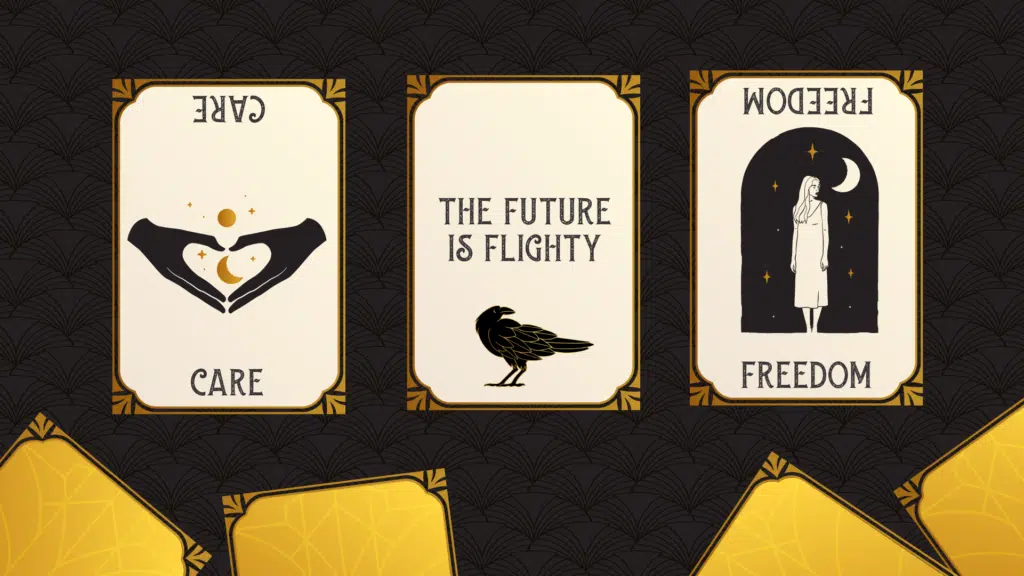By Leah Eichler
“Are you saying, Dad, you’re glad you lost your job?”
“In many ways, Josie, yes. And it’s not like I really lost my job. It’s all been part of the changes. Everyone’s had to find new ways to live their lives.”
There’s a pivotal moment in Kazuo Ishiguro’s latest novel, Klara and the Sun, where, as a reader you come to the realization that it’s too late to change course on the role automation plays in our workforce. The robot revolution is here. Welcome to the new world order.
Now, the phrase “new world order” nearly always sounds like an exaggeration but let’s reflect on the last year and half. Worries that seemed like intellectual gymnastics only a few years ago are now impacting our everyday lives. A global pandemic. The imminent arrival of climate change. A near coup in the United States. A reckoning of racially targeted hate crimes perpetrated by the police. Even in Canada, where we like to consider ourselves consistently on the right side of history, we are discovering hundreds of aboriginal children buried in unmarked graves across the country.
Our proximity to complete and utter societal disintegration feels precariously close. Maybe that’s why I cried through every episode of Sweet Tooth, the Netflix show where an impossibly earnest half human child, half deer, embarks on a journey in a post-apocalyptic world ravaged by disease and environmental destruction. It’s been quite the year.
Still, the eternal optimist in me, and I imagine others, likes to talk pause and say, ‘hold on. We can still fix this. There’s still time.”
This is where Ishiguro hits home. In the not-to-distance future – we are talking months, not years — the rise of AI will continue to push many out of the market. Naturally, there’s already much evidence to date: the automatic checkouts at the grocery store, the robotic coffee baristas, the iPad-like screens that replaced humans at McDonalds. Somehow, as a casual observer, these changes seem quaint, almost expected. For many of us, we are still in the this-doesn’t-impact-me stage.
Then, reports start coming out about more senior decision-making being accomplished by AI. Surely, I’m not the only one disturbed when Flex drivers for Amazon are now being fired if they don’t meet their delivery quota determined by an algorithm, as Bloomberg recently reported.
Yes, the robot revolution we all feared, is already here. By 2025, we can expect a “new division of labour between humans and machines,” according to the World Economic Forum’s Future of Job’s Report.
The highlights of the report include that automation will disrupt 85 million jobs globally, with roles such data entry, accounting, and administrative support weaning on the human side. While 97 million new jobs will be created, communities most a risk will need support from businesses and governments.
Sure, sure, we say, sipping our robotic latte. But I have skills. Skills. Still, automation impacts highly educated and highly paid workers more often than you think. A study from the Boston University School of Law and summarized in the Harvard Business Review demonstrates that the years in which a firm increases their expenditures on automation, that “automation spike” as it’s called, tends to negatively impact tenured workers, who lose on average 3,800 euros in wages and spend more time unemployed.
Back to Klara and the Sun, in which the over-educated and under-employed need to duke it out for the select high end jobs available, often resorting to extreme measures, in the novel’s case, medical enhancements, to make them competitive. Relationships, for the most part, remained doomed as the dutifully employed fight over scarce opportunities left behind.
If you think that’s bad, let’s not forget that less educated and lower wage earners are already bearing the brunt of AI. A recent study by MIT showed that adding one robot per 1000 workers in the U.S., wages declined by 0.42%.
The jobs market has been changing for years. I’ve written about it and so have many others. This is not necessarily a bad thing. Ironically, workers have been able to use this opportunity, presented by the pandemic, to re-assess what they want out of a place where they allocate a good chunk of their waking hours.
In some cases – especially with the help of pandemic related benefits – some workers, particularly in hospitality and other service-related industries have begun to reconsider the cost of working. Dubbed the “reservation wage,” it refers to the tipping point when it becomes more valuable to work than to not, too. Any mother I know runs this calculation on a regular basis. (If childcare costs X and my after-tax income equals Y am I better off at this job?) The line that connects salary to sense of worth seems to be slowly disintegrating.
So how will we survive? Again, this is where my eternal optimism makes a comeback. Governments, and taxpayers, will need to come to terms with a for of — wait for it – form of basic income. Yes, I said it. Before biting my head off, keep in mind that in Canada, we already have basic income. It just starts when you turn 65 years old. COVID relief, offered in Canada and the United States, is also a form of basic income. The PR surrounding that phrase needs some work. As Jamie Swift and Elaine Power so eloquently say in “The Case of Basic Income,” framing is everything.
Here’s where my optimism turns manic. If we can deconstruct that social convention that salary is tied to worth and personal gratification, we can really begin to imagine what a new world order looks like. Ask yourself: What would you do with your time when you can’t – and don’t work in the conventional sense? That question may strike fear in the hearts of many (mine included) who are more than used to waking up at dawn in a cold sweat at the list of work-related tasks that lie ahead, maybe, just maybe, there are other options.
For example, let’s reconsider childcare and elder care. Long the role of suffering, underpaid or non-paid caregivers, what if we could legitimize this often overlooked but incredibly important role in our communities. What if we – now hear me out – paid parents to stay home? Surely sociologists and psychologists way above my pay grade could weigh in on the long term benefits to humans big and small and the longer-term impact to our communities.
Another thought: pay more artists to create art. If you don’t see the value in writers, artists, musicians and the like, I can’t and won’t be the one to explain the value to you. If you are already sold, like me, then perhaps it’s time
We could also institutionalize mentorship. No more students graduating into the great unknown with no guidance. Workplaces take them in and train them, in their field, preparing them for a world of work.
One benefit of AI in the workforce may be that we evolve from our frenetic pace to survive into a something greater. Who is to say who is more valuable? A playwright who opens the hearts and minds of the thousands in the audience or a CEO earning a wage in striking distance of the GDP of a small country? These could be questions we should begin asking. And we have our robot overlords to thank for it.

